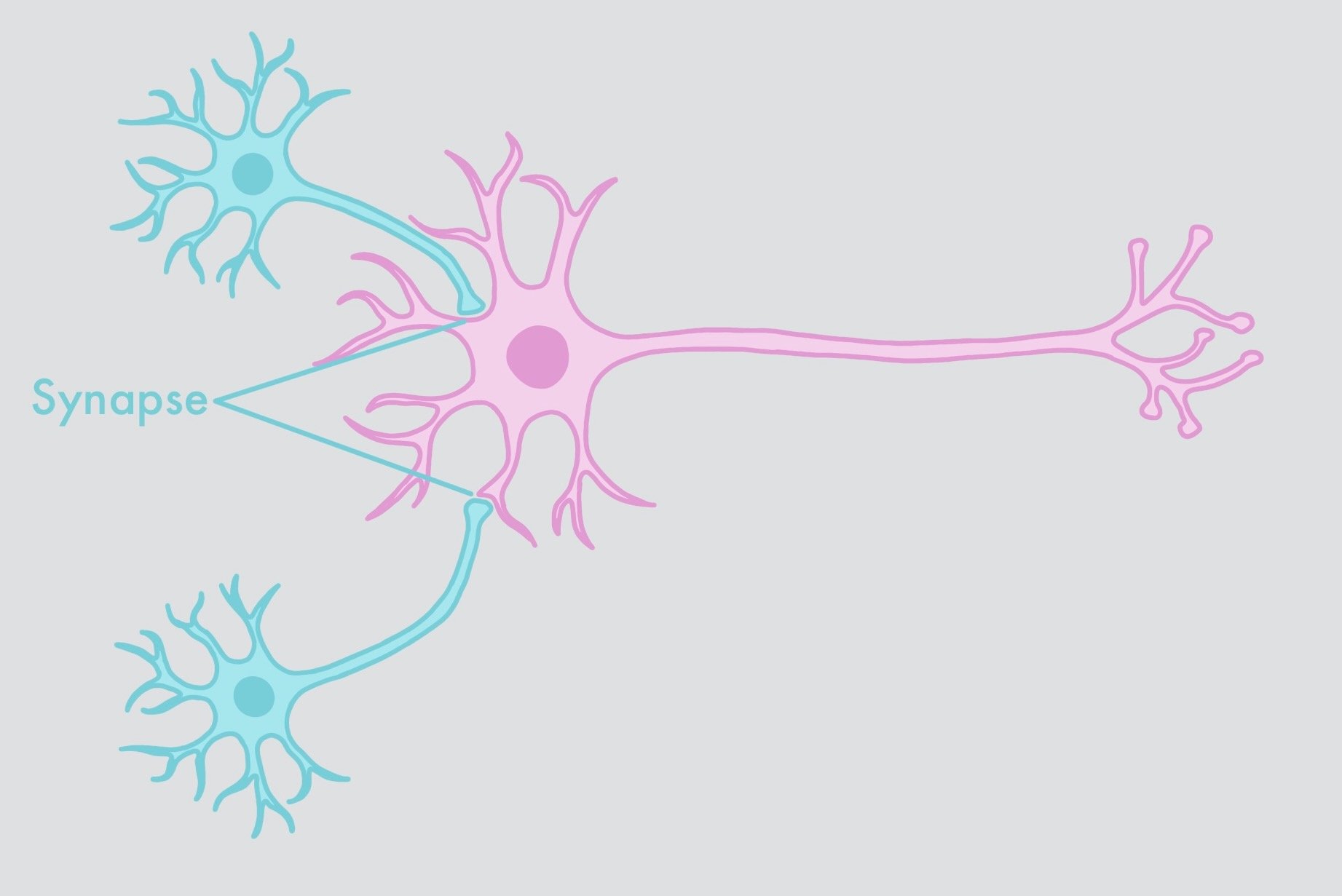
A synapse is a specialized structure in the nervous system that allows for the transmission of signals between two neurons (nerve cells) or between a neuron and a target cell (such as a muscle or gland cell). Synapses are fundamental to the functioning of the nervous system and play a crucial role in information processing, learning, and memory.
Key features of synapses:
- Structure: A typical synapse consists of:
- Presynaptic terminal: The end of the transmitting neuron
- Synaptic cleft: A small gap between the neurons
- Postsynaptic membrane: The receiving part of the target neuron
- Types of synapses:
- Chemical synapses: Use neurotransmitters to transmit signals (most common)
- Electrical synapses: Allow direct electrical coupling between neurons (less common)
- Neurotransmitter release: In chemical synapses, the presynaptic neuron releases chemical messengers (neurotransmitters) into the synaptic cleft.
- Receptor activation: Neurotransmitters bind to specific receptors on the postsynaptic membrane, potentially triggering a response in the target cell.
- Synaptic plasticity: Synapses can change their strength over time, a property crucial for learning and memory formation.
- Directionality: Most synapses are unidirectional, transmitting signals from the presynaptic to the postsynaptic cell.
- Speed of transmission: Electrical synapses transmit signals faster than chemical synapses but are less modifiable.
Importance of synapses:
- Information processing: Synapses allow for the integration and modulation of neural signals.
- Learning and memory: Changes in synaptic strength underlie many forms of learning and memory formation.
- Neural circuits: Synapses connect neurons into complex networks that perform specific functions.
- Neurotransmitter balance: Proper synaptic function is crucial for maintaining appropriate levels of neurotransmitters in the brain.
- Therapeutic targets: Many neurological and psychiatric medications work by affecting synaptic transmission.
Understanding synapses is crucial in neuroscience, as they are fundamental to brain function and are implicated in various neurological and psychiatric disorders. Research into synaptic function continues to provide insights into brain health, cognitive processes, and potential treatments for neurological conditions.




